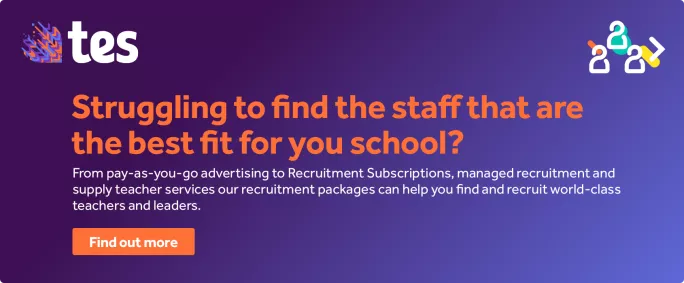- Home
- Video interviews: what’s not to like?
Video interviews: what’s not to like?

Video link working? Check.
Freshly ironed shirt? Check. Shoes? Optional. Travel time? Zero.
The chances of my interview being interrupted by my eldest barging through the door followed by his baby brother in a repeat of Professor Robert Kelly’s viral BBC interview in 2017? Very slim…but never underestimate your children and their ability to make you look a fool.
As I began my video interview, I reflected that although I was still visited by the usual butterflies and feelings of self-doubt, this was, by far, the most comfortable I have ever been during a job interview.
It’s important, at this point, to mention that I did not get the job. But that does not take away the positives of the process.
Aside from the result, the video interview was a pleasure from start to finish and this made me think: are parts of the video interview worth keeping after lockdown?
Coronavirus: Online interviews for teachers
Two weeks before the interview, candidates were sent tasks and asked to submit them a week before the day itself.
There was an advisory time limit, which I stuck to, but having time to sit and reflect meant I felt what I shared with the school was a true indication of who I am and what I stand for. There was no “I wish I’d put this” moment.
I also still managed to get one-on-one time with the leadership team. There was a brief online chat with the head before the interview day to allow any questions to be asked and to ensure that the technology was working. Although only a small detail, this made the whole situation seem far more welcoming.
What was lacking from a usual interview day was the sense of performance. Because we had the tasks in advance, I only had the interview aspect on the day itself. This meant I had not been driven to a point of exhaustion by being the super-professional version of myself for an entire day.
There is a reason that plays and musicals have intervals; it’s exhausting for everyone to keep that up.
So what can schools learn from this?
When I got the call to say I had been unsuccessful, I still passed on how well I felt the school had conducted the interviews.
There are certainly things that I felt all schools could adopt from this new process.
1. Use a video link to draw up a shortlist
I think video interviews would be a really useful way of drawing up a shortlist, especially if you have a wide range of applicants to pick from.
It may not be possible for all candidates to visit a school and this is a perfect way to give everyone a similar experience and get to know the person behind the application.
2. Set tasks before interview day
It would be worth considering the type of activities you are setting on the day, and selecting some that might be better sent in advance.
For example, an activity around prioritising tasks, where you require candidates to work under pressure, is fine to be given on the day of an interview with strict timings, as this reflects the job.
However, if you are asking something to be presented that would require meticulous planning, you should be giving that in advance. There needs to be a mixture of both.
3. Share the questions with the candidate
Similarly, it would be a good idea to give some interview questions in advance.
Although there are certainly some questions that you might want to get a spontaneous response to, if we wish to move away from knee-jerk decision making in education, we must demonstrate this through our interview process as well.
4. Rethink the interview lesson
I don’t think lesson observations are always needed. I would ask what do we actually gain from observing someone experienced during an interview?
Interview lessons are an artificial situation for both the students and the teacher. Instead, we should be looking for ways to understand the candidate’s expectations and thought processes. A standalone observation isn’t the way to do this.
5. Ask all candidates for honest feedback
We must continually refine what we do and strive to be better, so asking the candidates for feedback on what they thought of the interview is also important.
Every other interview I have been through has been fairly similar. Yet this interview stands out because of how it had to be adapted.
David Alderson is currently the head of English and lead practitioner for teaching and learning at All Saints’ Catholic Voluntary Academy in Nottinghamshire.
Keep reading for just £1 per month
You've reached your limit of free articles this month. Subscribe for £1 per month for three months and get:
- Unlimited access to all Tes magazine content
- Exclusive subscriber-only stories
- Award-winning email newsletters

